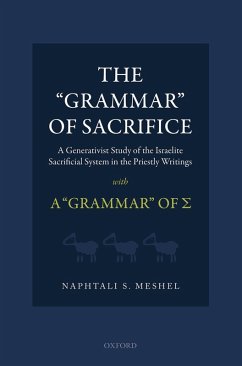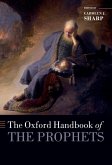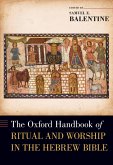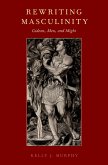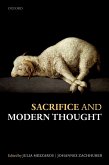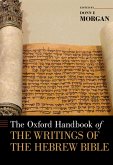The notion that rituals, like natural languages, are governed by implicit, rigorous rules led scholars in the last century, harking back to the early Indian grammarian Patañjali, to speak of a "grammar", or "syntax", of ritual, particularly sacrificial ritual. Despite insightful examples of ritual complexes that follow hierarchical rules akin to syntactic structures in natural languages, and ambitious attempts to imagine a Universal Grammar of sacrificial ritual, no single, comprehensive "grammar" of any ritual system has yet been composed. This book offers the first such "grammar." Centering on S-the idealized sacrificial system represented in the Priestly laws in the Pentateuch-it demonstrates that a ritual system is describable in terms of a set of concise, unconsciously internalized, generative rules, analogous to the grammar of a natural language. Despite far-reaching diachronic developments, reflected in Second Temple and rabbinic literature, the ancient Israelite sacrificial system retained a highly unchangeable "grammar," which is abstracted and analysed in a formulaic manner. The limits of the analogy to linguistics are stressed: rather than categories borrowed from linguistics, such as syntax and morphology, the operative categories of S are abstracted inductively from the ritual texts: zoemics-the study of the classes of animals used in ritual sacrifice; jugation-the rules governing the joining of animal and non-animal materials; hierarchics-the tiered structuring of sacrificial sequences; and praxemics-the analysis of the physical activity comprising sacrificial procedures. Finally, the problem of meaning in non-linguistic ritual systems is addressed.
Dieser Download kann aus rechtlichen Gründen nur mit Rechnungsadresse in A, B, BG, CY, CZ, D, DK, EW, E, FIN, F, GR, HR, H, IRL, I, LT, L, LR, M, NL, PL, P, R, S, SLO, SK ausgeliefert werden.

